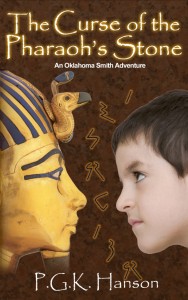Writers experience a lot of rejection–from agents, publishers, even readers. And it’s never fun. For some writers, the pain of rejection makes them question if they want to continue writing at all. That’s understandable, as a rejection of your work can feel very personal.
And why wouldn’t it feel personal? A writer spends months, sometimes years, perfecting their story. Many of their own emotions and experiences bleed into the story, making the opinions of others feel like a judgment on themselves. Indeed, many writers refer to their works as their “babies”—and what’s more upsetting than someone telling you your baby is ugly?
But here’s the thing—our stories are not really babies, even if we do “carry” them much longer than many pregnancies. But that fact is an awesome thing, because that means the rejections and the bad reviews don’t have to hurt as much, because none of that rejection is permanent.
With a real baby, you only get once chance to do it right. All of life is a first draft, with no possibility of revision, no Undo button. With a real baby:
You can’t put her in a drawer and give up when the going gets tough in the messy middle.
You can’t go back and rewrite the story arcs that didn’t go the way you intended.
You can’t reword the harsh dialogue you spoke to her yesterday.
You can’t make a scene unfold exactly the way you wish to make her happy.
You can’t make sure the boy that made her cry on the playground gets his comeuppance.
You can’t manipulate time to focus on pleasant moments and speed past the painful ones.
Most of all, you cannot hold her in your arms and protect her from the world.
We all want to share our stories with the world. And it’s terrifying to put something you love out in the public eye. Rejections sting. A horrid review can wound deeply. But neither of those things spell the end of your career. In this day of self-publishing, you can always put out a revised version of a book that didn’t quite measure up. When one book doesn’t work out, you can write another one. Unlike with a real baby, you can start over when things go awry. You don’t get only one chance to do it right.
So when you start to suffer the slings and arrows of outrageous fortune, try to remember: it’s not personal, and it’s not The End.



The Goose’s Quill Top Posts of 2017
At the end of every year, I look back and see what posts resonated most with my readers. This year’s top posts were a nice mix of writing posts and mom/life posts.
And the #1 post on 2017:
I hope you enjoyed some of these posts, and I hope to keep serving up posts my readers love in 2018! Have a happy and safe New Year, everyone!